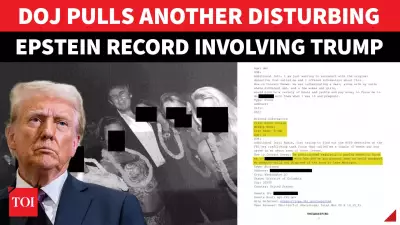
In a significant development that could reshape America's approach to combating drug trafficking, Fox News host Pete Hegseth has revealed that the United States military now possesses all necessary authorities to conduct strikes against Mexican drug cartels. This announcement marks a potential turning point in the ongoing battle against narcotics organizations responsible for flooding American communities with deadly substances.
The Authorization Revelation
During a recent broadcast, Pete Hegseth made the stunning disclosure that the US military has been granted comprehensive authorization to target and strike drug cartels operating in Mexico. This represents a substantial escalation in America's counter-narcotics strategy, moving beyond traditional law enforcement cooperation to potentially include direct military action against these criminal organizations.
The authorities reportedly cover the full spectrum of military capabilities, though specific details about the scope and limitations remain classified. This development comes amid growing frustration with the persistent flow of illegal drugs, particularly fentanyl, across the southern border and the devastating impact these substances have had on American communities nationwide.
Context of the Cartel Threat
The urgency behind this authorization becomes clear when examining the scale of the cartel operations. Mexican drug cartels have evolved into sophisticated transnational criminal enterprises that control vast smuggling networks and generate billions in illicit revenue. Their operations extend far beyond drug trafficking to include human smuggling, weapons trafficking, and money laundering.
Most alarmingly, these organizations are responsible for the production and distribution of fentanyl, which has become the leading cause of death for Americans between the ages of 18 and 45. The synthetic opioid has created a public health crisis of unprecedented proportions, with overdose deaths reaching record levels across the United States.
The cartels' operational sophistication matches that of many terrorist organizations, with their own intelligence networks, counter-surveillance capabilities, and paramilitary-style training camps. This has increasingly led to calls for treating them not merely as criminal groups but as national security threats warranting a military response.
Potential Implications and Strategic Shift
This authorization represents what could be the most significant shift in US drug policy in decades. Traditionally, America has approached the cartel problem primarily through law enforcement cooperation with Mexican authorities, intelligence sharing, and financial sanctions. The decision to potentially employ military force signals a fundamental reassessment of the threat level these organizations pose.
The move raises important questions about sovereignty and international law, as any military action within Mexican territory would require delicate diplomatic handling. Mexico has historically been sensitive about foreign military operations on its soil, making coordination with the Mexican government a critical component of any potential operations.
Military analysts suggest that targeted strikes would likely focus on key cartel leadership, production facilities, and logistical networks. The approach might mirror counterterrorism operations against groups like ISIS and Al-Qaeda, where precision strikes are used to degrade organizational capabilities while minimizing collateral damage.
However, this strategy also carries significant risks, including potential escalation of violence, retaliation against American interests, and complications in US-Mexico bilateral relations. The cartels have demonstrated considerable resilience and adaptability in the past, often quickly replacing captured or eliminated leaders.
Broader Counter-Narcotics Strategy
The military authorization appears to be one component of a broader, more aggressive approach to the drug crisis. The Biden administration has been under increasing pressure from both political parties to take more decisive action against the cartels and the fentanyl epidemic.
In recent months, there have been calls in Congress to officially designate certain cartels as Foreign Terrorist Organizations, which would provide additional legal authorities for action against them. Several legislative proposals have emerged seeking to enhance border security, improve screening technology at ports of entry, and increase resources for addiction treatment and prevention programs.
The administration has also been working to strengthen cooperation with China on preventing the export of fentanyl precursors, since many of the chemical components used to manufacture the drug originate from Chinese suppliers. This multi-pronged approach recognizes that effectively combating the fentanyl crisis requires addressing both supply and demand factors.
As Pete Hegseth emphasized in his reporting, the granting of these military authorities represents a recognition that traditional approaches have proven insufficient against the scale and sophistication of the cartel threat. The coming months will reveal how these new capabilities are implemented and what effect they have on the flow of illegal drugs into the United States.
The development underscores the evolving nature of national security threats in the 21st century, where non-state actors like drug cartels can pose challenges comparable to those from traditional nation-state adversaries. How America balances the use of military power against criminal organizations while maintaining diplomatic relationships will be closely watched by security experts and policymakers worldwide.





